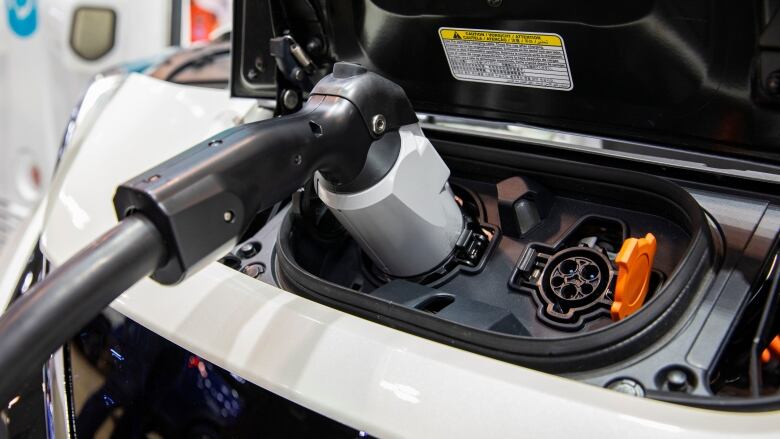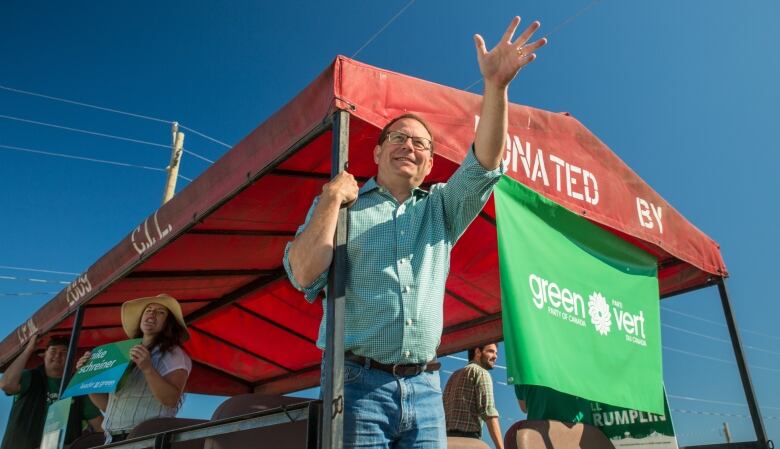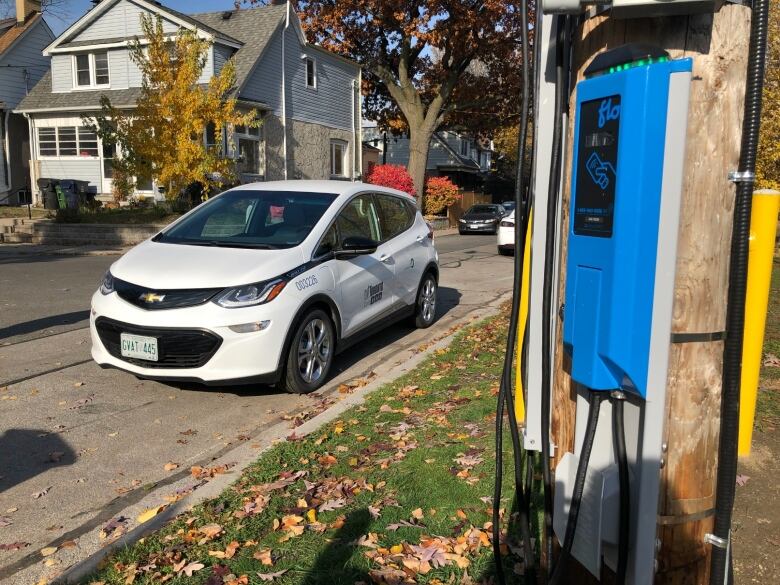Ontario's Green Party unveils electric vehicle supply chain strategy ahead of June election
Party releasing multi-billion dollar plan to increase demand, production and work with Indigenous communities

With two months to go before the provincial election, the Ontario Green Party is unveiling a plan that it says would increase demand for electric vehicles (EVs) and bolster the supply chain to manufacture more of them.
CBC News obtained a copy of the plan set to be released today that's dubbed the 'Made-in-Ontario EV Supply Chain Strategy.' It touches on various parts of the supply chain from the mining of minerals required in EV production, to the workforce.
"Ontario is behind in both the demand side and in the investment side. We're playing catch up," Green Party Leader Mike Schreiner told CBC News.
"I'm hoping that all levels of government can come together and implement the kinds of solutions that the Ontario Greens are putting forward."
The unveiling of the strategy follows a series of announcements by both the provincial and federal governments on zero-emission vehicles and manufacturing, with climate shaping up to be anelection issue come June.

Deputy party leader Dianne Saxe also the province's last environmental commissioner says what sets theplan apart is more measures to boost demand for EVs, low-carbon manufacturing processes for EVs, and working with Indigenous communities when it comes to mining critical elements necessary for EV production.
"Our plan starts with recognizing that if we want access to minerals, and we do, that has to be Indigenous led," said Saxe, who will be running as the Green candidate in the University-Rosedale riding in the upcoming election.
The Doug Ford government recently unveiled a plan to positionOntario as a reliable supplier of critical mineralsincluding those necessary for producingEVs. It has previouslytouted the Ring of Fire a mineral deposit located more than 500 kilometres northeast of Thunder Bay, Ont., in an area home to Indigenous people as one of the resources that could make Ontario a leading manufacturer of electric vehicle batteries.
Though the Ontario government had said it would consult with First Nations,some groups have declared a moratorium on development on the lands.
The plan by the Greens also includes a $10,000 provincial rebate for the purchase of a fully electric vehicle and a $1,000 rebate for an e-bike. The party says theprogram would be self-funded through a "feebate" where high-emitting vehicles are charged an additional fee.

"That creates an incentive for the industry to move to a more electrified transportation fleet faster than they already are,"Schreinersaid.
The plan includes measures to attract workers to the industry to help in the supply chain. Schreiner says the party is pledging $1.7 billionover four years to cover a year of college and one year of a paid apprenticeship for60,000students entering the green workforce, withtargeted recruitment of women, Black, Indigenous people and other racialized communities.
The total price tag for the Green's new plan: an estimated $11.7 billion over four years.
Where the parties stand
In 2018, Ford's government cancelled the electric vehicle rebate program brought in by the Liberals under Kathleen Wynne. Last November, it announced a plan to ramp up electric vehicle production.In recent weeks it announced a series of other measures related to EVs.
On March 15, both the provincial and federal governments announced they'd each dedicate $131.6 millionto upgrade a Honda manufacturing plant that will eventually build the 2023 CR-V and CR-V Hybrid vehicles.
The week after, the governments jointly announced they'd offered incentives to bring a $4.9 billion lithium-ion electric vehicle (EV) battery manufacturing plant to Windsor the first of its kind in Canada. But just how much each level of government kicked in wasn't revealed.
In November, the Ontario Liberals unveiled a plan to provide an $8,000 incentive for buying or leasing a new electric vehicle should they win the provincial election. The partyalso pledged to create a provincial subsidy program to cover 30 per cent of the cost of electric charging stations in parking lots, apartment buildings and workplaces.
Prior to that, the NDP announced its strategy, which it said would include "strong incentives" to buy an electric vehicle, excluding what it calls "luxury vehicles." It also includeda pledge to give households $600 to install a charging station at home.












_(720p).jpg)


 OFFICIAL HD MUSIC VIDEO.jpg)
.jpg)



























































































